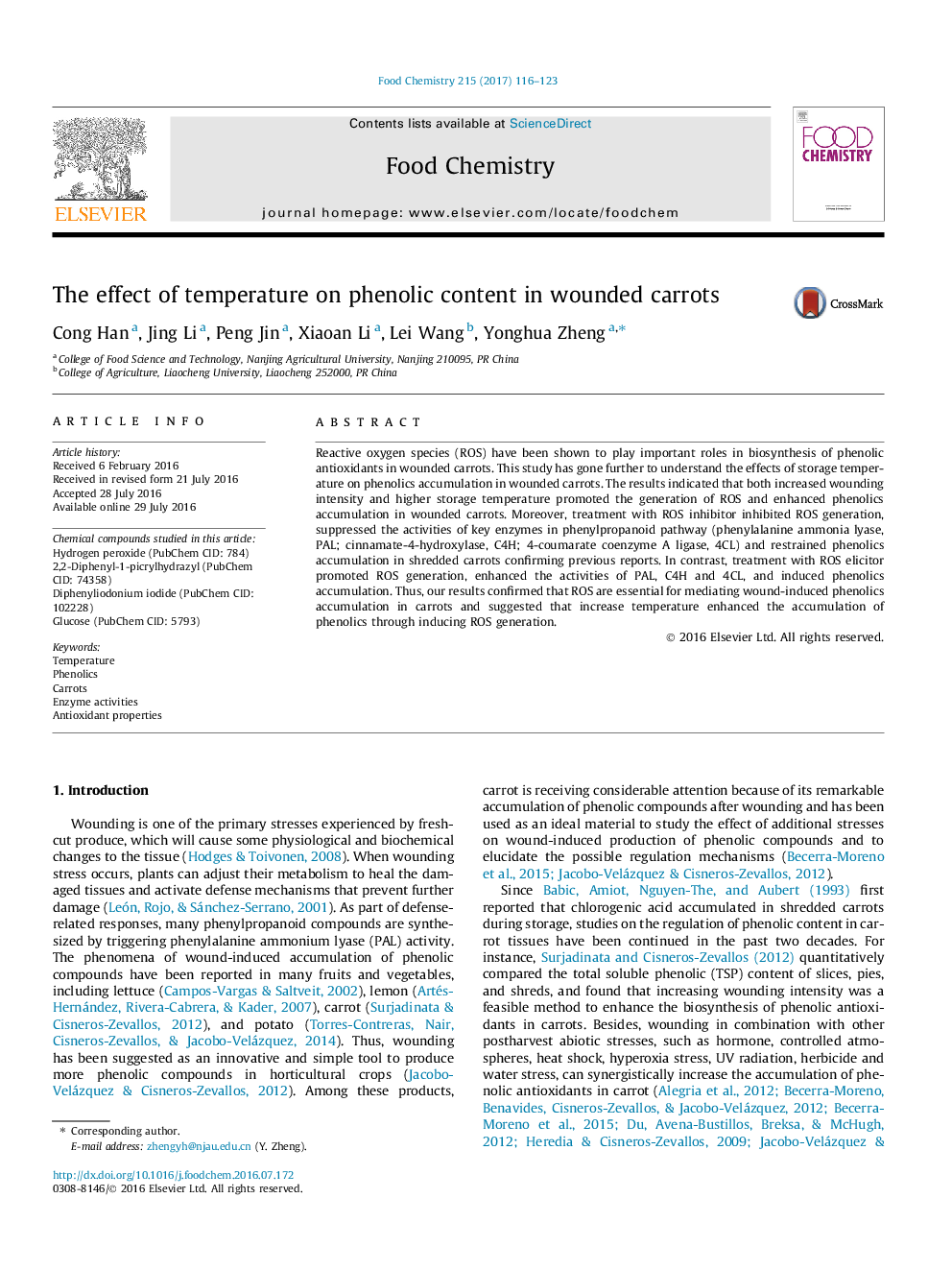| Article ID | Journal | Published Year | Pages | File Type |
|---|---|---|---|---|
| 1183714 | Food Chemistry | 2017 | 8 Pages |
•Increased wounding intensity and temperature enhanced phenolics content of carrot.•Higher temperature increased the antioxidant activity of wounded carrots.•DPI inhibited enzymes associated to phenolic accumulation at 20 °C.•DPI inhibited antioxidant enzymes at 20 °C.
Reactive oxygen species (ROS) have been shown to play important roles in biosynthesis of phenolic antioxidants in wounded carrots. This study has gone further to understand the effects of storage temperature on phenolics accumulation in wounded carrots. The results indicated that both increased wounding intensity and higher storage temperature promoted the generation of ROS and enhanced phenolics accumulation in wounded carrots. Moreover, treatment with ROS inhibitor inhibited ROS generation, suppressed the activities of key enzymes in phenylpropanoid pathway (phenylalanine ammonia lyase, PAL; cinnamate-4-hydroxylase, C4H; 4-coumarate coenzyme A ligase, 4CL) and restrained phenolics accumulation in shredded carrots confirming previous reports. In contrast, treatment with ROS elicitor promoted ROS generation, enhanced the activities of PAL, C4H and 4CL, and induced phenolics accumulation. Thus, our results confirmed that ROS are essential for mediating wound-induced phenolics accumulation in carrots and suggested that increase temperature enhanced the accumulation of phenolics through inducing ROS generation.
